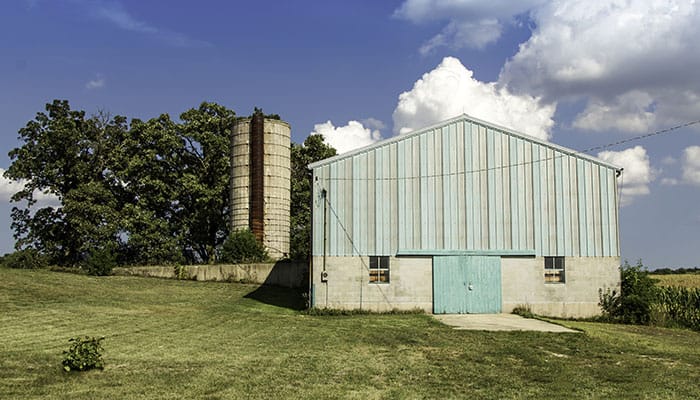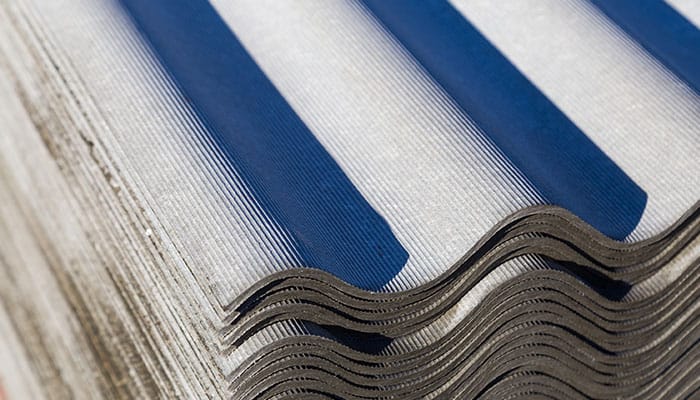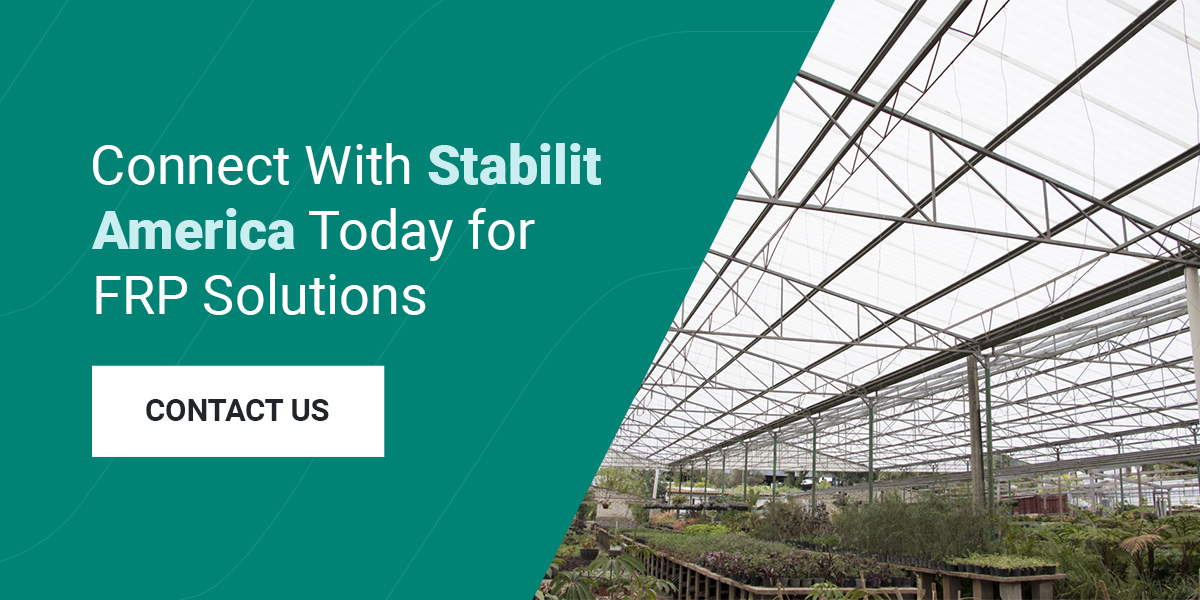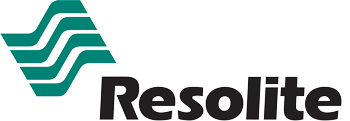Agricultural buildings are exposed to some of the harshest conditions of any structure. Moisture, chemicals, temperature changes and constant use all put heavy demands on materials. This is why agricultural cladding plays a critical role in protecting barns, storage facilities and greenhouses.
Modern cladding solutions are designed to enhance durability, hygiene and long-term performance. For farmers and agricultural professionals, selecting the appropriate cladding material can substantially reduce maintenance requirements and extend the lifespan of agricultural infrastructure.
Durable agricultural cladding solutions for every need
Agricultural cladding refers to protective wall and ceiling systems installed in farm buildings. These systems protect structures from environmental stress and create safer, more functional interior spaces.
Common agricultural applications include:
- Livestock barns and poultry sheds.
- Storage and handling facilities for feed and grain.
- Equipment sheds and workshops.
- Greenhouses and propagation buildings.
- Processing and packing areas.
As these environments involve moisture, dust and chemical exposure, cladding materials must be robust, dependable and simple to maintain.
How can enhance your farm’s infrastructure
Protection against moisture and corrosion
Moisture is one of the biggest threats to agricultural buildings. High humidity, washdowns, and condensation can quickly damage traditional materials. Modern agricultural cladding resists water absorption and helps prevent corrosion and structural deterioration.
Improved hygiene and animal health
Clean environments are essential for animal welfare and food safety. Smooth, non-porous cladding surfaces are easier to clean and help reduce the buildup of bacteria, mold, and contaminants.
Long-term durability in harsh conditions
Farm buildings experience daily wear from equipment, livestock, and heavy use. High-performance cladding materials are designed to withstand impacts and harsh conditions without cracking or degrading.
Reduced maintenance and downtime
Durable cladding systems require fewer repairs and less frequent replacement. This helps farmers reduce maintenance costs and keep operations running smoothly.
Top benefits of agricultural cladding for barns and greenhouses
Weather resistance
Agricultural cladding protects buildings from wind, rain, and temperature fluctuations. This is especially important for barns and greenhouses where environmental control directly affects productivity.
Light management
In greenhouses and livestock facilities, cladding can help manage natural light, creating healthier conditions for plants and animals.
Structural protection
Cladding acts as a protective barrier that shields underlying structures from damage caused by moisture, chemicals, and physical impact.
Operational efficiency
Clean, durable surfaces improve workflow by making facilities easier to clean, inspect, and maintain.
Why FRP is widely used in agricultural cladding
Fiberglass Reinforced Plastic (FRP) is increasingly specified for agricultural cladding due to its performance in demanding environments. FRP in agricultural projects provides several advantages:
- Resistance to moisture, corrosion, and chemicals.
- High impact strength for busy farm environments.
- Lightweight panels that are easy to install.
- Long service life with minimal maintenance.
These benefits make FRP a reliable choice for both new construction and retrofit projects in agriculture.
Common agricultural applications for FRP cladding
FRP cladding systems are commonly used in:
- Dairy and livestock barns.
- Poultry and hog facilities.
- Feed mixing and storage areas.
- Equipment maintenance buildings.
- Greenhouses and propagation zones.
In each case, FRP helps protect structures while supporting cleaner and more efficient operations.

What to consider when choosing agricultural cladding
Before selecting a cladding system, it’s important to evaluate:
Environmental conditions
Exposure to moisture, chemicals, and temperature extremes should guide material selection.
Impact and wear
Facilities with equipment or livestock require materials that can handle frequent contact.
Hygiene requirements
Cladding should support cleaning routines and biosecurity standards.
Installation and support
Working with experienced manufacturers ensures consistent quality and reliable guidance.
Why Stabilit America is a trusted choice for agricultural cladding
Stabilit America is known for providing engineered FRP solutions designed for demanding environments, including agriculture. Their products are built to perform in conditions where durability, hygiene, and weather resistance are essential.
By offering system-based solutions and manufacturing expertise, Stabilit America helps agricultural professionals protect their facilities and reduce long-term maintenance costs.
Investing in the right agricultural cladding
Agricultural cladding is more than a finishing layer. It is a critical investment in the durability and efficiency of farm infrastructure. Choosing materials designed for harsh agricultural conditions can significantly improve building performance and longevity.
With proven solutions and experience in FRP in agricultural projects, manufacturers like Stabilit America provide cladding systems that help farms operate more efficiently and sustainably.
Frequently asked questions
What types of buildings benefit most from agricultural cladding?
Agricultural cladding is commonly used in barns, livestock housing, equipment sheds, feed storage buildings, and greenhouses. These structures benefit from added protection against moisture, weather exposure, and daily wear.
How does agricultural cladding perform in humid or corrosive environments?
High-quality cladding materials are designed to resist moisture, condensation, and exposure to agricultural chemicals. This helps prevent corrosion and material breakdown in challenging farm conditions.
Is agricultural cladding suitable for retrofit projects?
Yes. Many agricultural cladding systems can be installed over existing structures, making them a practical solution for upgrading older farm buildings without major reconstruction.
Can agricultural cladding help improve hygiene in livestock facilities?
Yes. Smooth, easy-to-clean cladding surfaces support better hygiene by reducing areas where dirt, bacteria, and moisture can accumulate. This contributes to healthier conditions for animals and workers.
Does cladding help reduce long-term maintenance costs?
Durable cladding materials typically require fewer repairs and less frequent replacement. Over time, this can significantly reduce maintenance expenses and downtime in agricultural operations.
Sources consulted:
- https://www.ch-composite.com/blog/what-are-the-applications-of-frp-pultruded-sections-in-agriculture-825051.html
- https://shapeshift.tech/blog/choosing-the-right-fibre-reinforced-material/
- https://zehabsd.com/blog/demystifying-greenhouse-coverings-a-guide-to-choosing-the-right-material-for-optimal-plant-growth-zehab-sd/
Stabilit America Inc. is a leading North American manufacturer of fiberglass reinforced panels (FRP) and polycarbonate sheets, with over 65 years of experience. The company offers the widest range of acrylic, polyester, and polycarbonate laminates, backed by international certifications (USDA, Greenguard, FM, ISO 9001, among others), serving industries such as industrial construction, transportation, and sustainable building.
Agricultural buildings are exposed to some of the harshest conditions of any structure. Moisture, chemicals, temperature changes and constant use all put heavy demands on materials. This is why agricultural cladding plays a critical role in protecting barns, storage facilities and greenhouses.
Modern cladding solutions are designed to enhance durability, hygiene and long-term performance. For farmers and agricultural professionals, selecting the appropriate cladding material can substantially reduce maintenance requirements and extend the lifespan of agricultural infrastructure.
Durable agricultural cladding solutions for every need
Agricultural cladding refers to protective wall and ceiling systems installed in farm buildings. These systems protect structures from environmental stress and create safer, more functional interior spaces.
Common agricultural applications include:
- Livestock barns and poultry sheds.
- Storage and handling facilities for feed and grain.
- Equipment sheds and workshops.
- Greenhouses and propagation buildings.
- Processing and packing areas.
As these environments involve moisture, dust and chemical exposure, cladding materials must be robust, dependable and simple to maintain.
How can enhance your farm’s infrastructure
Protection against moisture and corrosion
Moisture is one of the biggest threats to agricultural buildings. High humidity, washdowns, and condensation can quickly damage traditional materials. Modern agricultural cladding resists water absorption and helps prevent corrosion and structural deterioration.
Improved hygiene and animal health
Clean environments are essential for animal welfare and food safety. Smooth, non-porous cladding surfaces are easier to clean and help reduce the buildup of bacteria, mold, and contaminants.
Long-term durability in harsh conditions
Farm buildings experience daily wear from equipment, livestock, and heavy use. High-performance cladding materials are designed to withstand impacts and harsh conditions without cracking or degrading.
Reduced maintenance and downtime
Durable cladding systems require fewer repairs and less frequent replacement. This helps farmers reduce maintenance costs and keep operations running smoothly.
Top benefits of agricultural cladding for barns and greenhouses
Weather resistance
Agricultural cladding protects buildings from wind, rain, and temperature fluctuations. This is especially important for barns and greenhouses where environmental control directly affects productivity.
Light management
In greenhouses and livestock facilities, cladding can help manage natural light, creating healthier conditions for plants and animals.
Structural protection
Cladding acts as a protective barrier that shields underlying structures from damage caused by moisture, chemicals, and physical impact.
Operational efficiency
Clean, durable surfaces improve workflow by making facilities easier to clean, inspect, and maintain.
Why FRP is widely used in agricultural cladding
Fiberglass Reinforced Plastic (FRP) is increasingly specified for agricultural cladding due to its performance in demanding environments. FRP in agricultural projects provides several advantages:
- Resistance to moisture, corrosion, and chemicals.
- High impact strength for busy farm environments.
- Lightweight panels that are easy to install.
- Long service life with minimal maintenance.
These benefits make FRP a reliable choice for both new construction and retrofit projects in agriculture.
Common agricultural applications for FRP cladding
FRP cladding systems are commonly used in:
- Dairy and livestock barns.
- Poultry and hog facilities.
- Feed mixing and storage areas.
- Equipment maintenance buildings.
- Greenhouses and propagation zones.
In each case, FRP helps protect structures while supporting cleaner and more efficient operations.

What to consider when choosing agricultural cladding
Before selecting a cladding system, it’s important to evaluate:
Environmental conditions
Exposure to moisture, chemicals, and temperature extremes should guide material selection.
Impact and wear
Facilities with equipment or livestock require materials that can handle frequent contact.
Hygiene requirements
Cladding should support cleaning routines and biosecurity standards.
Installation and support
Working with experienced manufacturers ensures consistent quality and reliable guidance.
Why Stabilit America is a trusted choice for agricultural cladding
Stabilit America is known for providing engineered FRP solutions designed for demanding environments, including agriculture. Their products are built to perform in conditions where durability, hygiene, and weather resistance are essential.
By offering system-based solutions and manufacturing expertise, Stabilit America helps agricultural professionals protect their facilities and reduce long-term maintenance costs.
Investing in the right agricultural cladding
Agricultural cladding is more than a finishing layer. It is a critical investment in the durability and efficiency of farm infrastructure. Choosing materials designed for harsh agricultural conditions can significantly improve building performance and longevity.
With proven solutions and experience in FRP in agricultural projects, manufacturers like Stabilit America provide cladding systems that help farms operate more efficiently and sustainably.
Frequently asked questions
What types of buildings benefit most from agricultural cladding?
Agricultural cladding is commonly used in barns, livestock housing, equipment sheds, feed storage buildings, and greenhouses. These structures benefit from added protection against moisture, weather exposure, and daily wear.
How does agricultural cladding perform in humid or corrosive environments?
High-quality cladding materials are designed to resist moisture, condensation, and exposure to agricultural chemicals. This helps prevent corrosion and material breakdown in challenging farm conditions.
Is agricultural cladding suitable for retrofit projects?
Yes. Many agricultural cladding systems can be installed over existing structures, making them a practical solution for upgrading older farm buildings without major reconstruction.
Can agricultural cladding help improve hygiene in livestock facilities?
Yes. Smooth, easy-to-clean cladding surfaces support better hygiene by reducing areas where dirt, bacteria, and moisture can accumulate. This contributes to healthier conditions for animals and workers.
Does cladding help reduce long-term maintenance costs?
Durable cladding materials typically require fewer repairs and less frequent replacement. Over time, this can significantly reduce maintenance expenses and downtime in agricultural operations.
Sources consulted:
- https://www.ch-composite.com/blog/what-are-the-applications-of-frp-pultruded-sections-in-agriculture-825051.html
- https://shapeshift.tech/blog/choosing-the-right-fibre-reinforced-material/
- https://zehabsd.com/blog/demystifying-greenhouse-coverings-a-guide-to-choosing-the-right-material-for-optimal-plant-growth-zehab-sd/
Stabilit America Inc. is a leading North American manufacturer of fiberglass reinforced panels (FRP) and polycarbonate sheets, with over 65 years of experience. The company offers the widest range of acrylic, polyester, and polycarbonate laminates, backed by international certifications (USDA, Greenguard, FM, ISO 9001, among others), serving industries such as industrial construction, transportation, and sustainable building.
The COVID-19 pandemic has heightened the need for sanitary environments across all industries. As the concern for hygiene has grown, both workers and customers are increasingly demanding cleaner, more hygienic spaces—especially in high-traffic areas. In response, industrial designers are opting for protective and sanitary solutions like hygienic wall cladding.
Hygienic wall panels, also known as antimicrobial surfaces, have gained popularity for their ability to combat bacteria, mold, and viruses, making them an excellent choice for spaces that require high sanitation standards. These panels not only help reduce the spread of germs but also resist stains and high-impact damages. They can be installed easily and quickly, ensuring your space remains clean and safe.
Let’s explore the science behind antimicrobial wall cladding and how it can improve your environment.
How Do Hygienic Panels Work?
Bacteria, mold, fungi, and viruses are often transmitted through contact with contaminated surfaces or via airborne particles. Hygienic wall cladding works by preventing the growth of these microorganisms, providing a protective barrier. Once installed, these antimicrobial surfaces begin to act immediately—if a sick person touches the wall, the antimicrobial agents begin working against bacteria and viruses right away, continuously reducing microbial growth over time.
These panels provide continuous protection against bacterial spread, keeping environments sterile for longer periods. However, hygienic panels don’t replace regular cleaning routines, but rather complement them. When combined with daily cleaning practices, they enhance the overall sanitation of the space.
A prime example of an environment that would benefit from hygienic wall cladding is schools. In busy school corridors, where students touch walls frequently, the antimicrobial properties of the panels prevent the spread of germs. If a sick student touches the wall after coughing or sneezing, the panel works to stop bacteria from contaminating the area.
Schools are an excellent example of an environment that would benefit from hygienic panels. You could place them along school corridors to reduce the spread of bacteria to students and employees. If a student coughs or sneezes into their palm, then places their hand on the antimicrobial surface, the wall would immediately prevent the bacteria from spreading. Without the hygienic wall cladding, one sick student could facilitate bacterial spread throughout the school.
However, hygienic panels don’t eliminate the need for other cleaning measures. You use them in combination with regular cleaning practices to create an enhanced sanitary environment.
Hygienic panels usually consist of fiberglass-reinforced plastic. FRP panels are popular in many industries because of their lightweight consistency and easy maintenance. They consist of a plastic matrix reinforced with Fiberglass polymers, which creates a resilient surface. You can combine hygienic FRP panels to make a thoroughly sanitized area.
Overall, hygienic wall claddings can help you create a safe environment in any industry.
Why Choose Antimicrobial Surfaces?
Benefits of Hygienic FRP Panels
Choosing antimicrobial materials for your environment offers multiple advantages. Here are some reasons why hygienic wall cladding, especially fiberglass-reinforced plastic (FRP) panels, are a great choice for your space:
- Easy installation: You can install hygienic FRP panels directly over existing walls, allowing for a simple installation. If you want to add antimicrobial panels to an existing area, you can measure it, then install a panel of the same size. If you’re starting a new project, you can add hygienic wall claddings after the initial construction. Either way, the installation is simple and hassle-free.
- Affordability: Hygienic wall claddings are also a cost-effective choice. Instead of paying costly replacement expenses, you can install the panels directly over existing surfaces. The antimicrobial materials can protect your surfaces for longer periods than typical tiles, saving you money in the long term.
- Sanitary protection: The many sanitary benefits of antimicrobial surfaces make them worthwhile for all types of industries. The reduction of bacteria, viruses and mold growth keeps your workplace safe. Employees and visitors can feel protected and satisfied. The panels’ lack of porous material allows them to protect against bacterial growth for longer periods. Overall, you can maintain cleanliness with low effort.
- Durability: Hygienic FRP panels can outlast typical wall panels. They are highly resistant to impacts and don’t crack easily. Their smooth surfaces prevent bacteria and other growth from building in seams. While they still require regular cleaning, you can wipe them easily and extend their life span even further.
Overall, hygienic wall panels are a cost-effective and durable choice for any environment.
Who Needs Antimicrobial Surfaces?
Hygienic wall claddings are an advantage in many industries. The panels can keep work environments cleaner, creating a more positive experience for employees and visitors.
These are examples of environments that would benefit from hygienic wall panels.
- Hospitals and medical facilities: Health care is a prominent example of an industry with high sanitation requirements. It’s crucial to provide patients with high-quality care and keep employees safe. Health care facilities can apply antimicrobial surfaces in many areas, from surgical suites to hospital rooms and corridors. The panels make it easier to maintain a sanitized environment for patients and staff alike.
- Food and beverage industry: The food industry also needs to meet high sanitation standards. Food preparation areas are susceptible to moisture and staining. Spills and moisture buildup can encourage bacterial growth, degrading the environment. Hygienic wall claddings can reinforce the area, improving stain resistance and creating a cleaner environment. You can install antimicrobial FRP panels in food preparation areas, food plants, sorting halls or storage rooms.
- Transportation: With over 30 million uses each weekday in America, public transportation has one of the highest traffic rates of any industry. From subway cars to bus stations, it’s crucial to maintain a safe environment for the many users around the country. Hygienic FRP panels can reduce the buildup of bacteria and microbes on walls and other high-touch areas. You can easily install them over existing walls in vehicles and transportation stations.
- Schools: Schools would also benefit from antimicrobial wall panels. They can reduce the spread of viruses and bacteria to the many students and employees in the building. With protection against bacteria growth and easier maintenance, the panels make it easier to maintain a clean environment for everyone.
Contact Stabilit America Today
Hygienic wall panels can help you create a safe environment. If you want to install a hygienic FRP panel, look no further than Stabilit America. Our inner wall and ceiling cladding can help you meet your high sanitation needs. And with our guaranteed simple installation, you can get started anytime. Whether you’re constructing new infrastructure or replacing a wall, our panels can be an ideal solution.
Our hygienic wall panels are perfect for many industries, including agriculture, health care, transportation and OEM. To get started with our hygienic inner walls, contact us today.
FAQs
What is hygienic cladding?
Hygienic cladding refers to wall coverings that have antimicrobial properties to prevent the growth of bacteria, mold, and viruses. These surfaces are often made of fiberglass-reinforced plastic (FRP) and are designed to be easy to clean and maintain.
What thickness should hygienic wall cladding be?
The thickness of hygienic wall cladding can vary depending on the application. Generally, a thickness between 1/8 inch to 1/4 inch is ideal for most environments, as it provides durability and impact resistance while maintaining ease of installation.
What is the best type of wall cladding?
The best type of wall cladding depends on the specific needs of the environment. For high-traffic and high-hygiene areas, fiberglass-reinforced plastic (FRP) cladding is one of the best choices due to its durability, antimicrobial properties, and ease of maintenance.
Stabilit America Inc. is a leading North American manufacturer of fiberglass reinforced panels (FRP) and polycarbonate sheets, with over 65 years of experience. The company offers the widest range of acrylic, polyester, and polycarbonate laminates, backed by international certifications (USDA, Greenguard, FM, ISO 9001, among others), serving industries such as industrial construction, transportation, and sustainable building.
Owners of agricultural and industrial buildings can benefit tremendously from the efficiency and low life cycle cost of fiberglass-reinforced plastic (FRP). FRP is a high-strength, versatile option for protecting your agricultural investments, repairing roof leaks resulting from failing metal, and improving animal comfort.
The experts here at Stabilit America have created this guide to walk you through the benefits of FRP panels for the agricultural industry.
What Is FRP?
FRP is a material composite solution designed for industries that need durable roof and wall panels capable of resisting corrosion and rot. Resolite creates farm FRP sheets from a combination of fiberglass and plastic to create materials of varying strength levels and properties tailored to individual needs. Resolite commonly supplies FRP roof panels for free-stall applications where metal corrodes quickly, along with FRP wall panels designed for interior and exterior applications.
Why FRP Sheets for Farms?
FRP is a powerful construction solution for the agricultural industry, boasting unique properties that make it perfect for the challenges of this demanding field.
The following are a few of the primary benefits of FRP wall panels for farm use:
1. Moisture and Corrosion Resistance
Resolite panels resist corrosion from animal waste and chemicals, providing a long-term roofing solution. FRP panels will not rust, rot, or develop pinholes, unlike metal. The surface of FRP is also nonporous and resists moisture saturation, which makes it an excellent selection for both interior and exterior wall and roof applications.
2. Low Maintenance Requirements
FRP roof panels can be sprayed clean with ease and do not require coatings or pinhole repairs. The low porosity of the surface also limits debris and dirt from penetrating the substrate, so the surface is easy to maintain.
3. Longevity
FRP is designed to withstand animal waste and chemicals like fertilizers without degrading. FRP roof panels maintain their integrity and consistently keep free-stall environments dry and free from leaks resulting from degradation.
4. Simple Retrofits
Resolite free-stall roof panels offer excellent load-span characteristics and can typically be installed on existing structures without modification. FRP roof panels install much like metal, and most dairy owners and contractors can complete installation projects without special training, tools, or personnel.
Agricultural Applications
FRP wall panels for agriculture can help owners and operators in several application areas:
- Dairy, pig, poultry and fish farms
- Food processing and meat packing
- Barns and loafing sheds
- Greenhouses
- Port facilities
- Kennels
- Storage facilities
- Industrial buildings
Connect With Stabilit America Today for FRP Solutions
Here at Stabilit America, we’re proud to serve farmers and other agricultural industry professionals with high-quality fiberglass-reinforced plastic solutions. Our excellent customer service can walk you through finding the FRP-based product that’s perfect for your application, and our state-of-the-art manufacturing units can build the exact solution you need. Contact us online today for more on our FRP wall panels for farms.
Stabilit America Inc. is a leading North American manufacturer of fiberglass reinforced panels (FRP) and polycarbonate sheets, with over 65 years of experience. The company offers the widest range of acrylic, polyester, and polycarbonate laminates, backed by international certifications (USDA, Greenguard, FM, ISO 9001, among others), serving industries such as industrial construction, transportation, and sustainable building.



